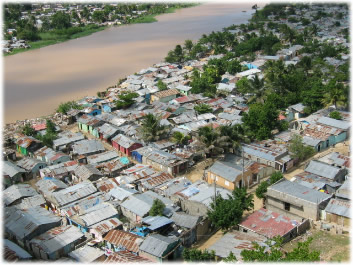|
As nations in the developing world face growing problems of food insecurity, water and forest conflicts, energy shortages, and community protests against extractive industries, it has become apparent that linkages between the environment and security are becoming progressively more powerful.
 Indeed, sustainable utilization of natural resources and the environment are critical to political and economic stability and social well-being. Environmental stresses often are overlooked as critical factors underlying social, political, and economic instability. However, left unrecognized or unresolved, such stresses can lead over time to heightened tensions and the potential for conflict. Indeed, sustainable utilization of natural resources and the environment are critical to political and economic stability and social well-being. Environmental stresses often are overlooked as critical factors underlying social, political, and economic instability. However, left unrecognized or unresolved, such stresses can lead over time to heightened tensions and the potential for conflict.
FESS focuses on understanding environmental issues in the political, economic, and social contexts of specific regions and nations, and identifies scenarios that have the potential to exceed the response capacity of states and populations. FESS helps to formulate assistance strategies that can mitigate problems before they become intractable to intervention. Through this contextualized and interdisciplinary approach, FESS promotes the prioritization of problems and the development of integrated, cross-sectoral conflict management solutions.
|



